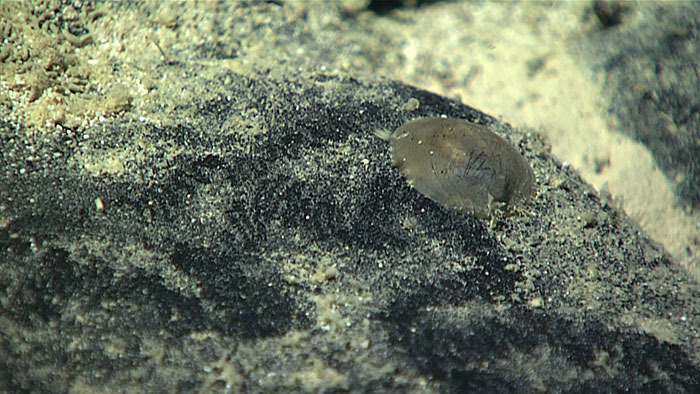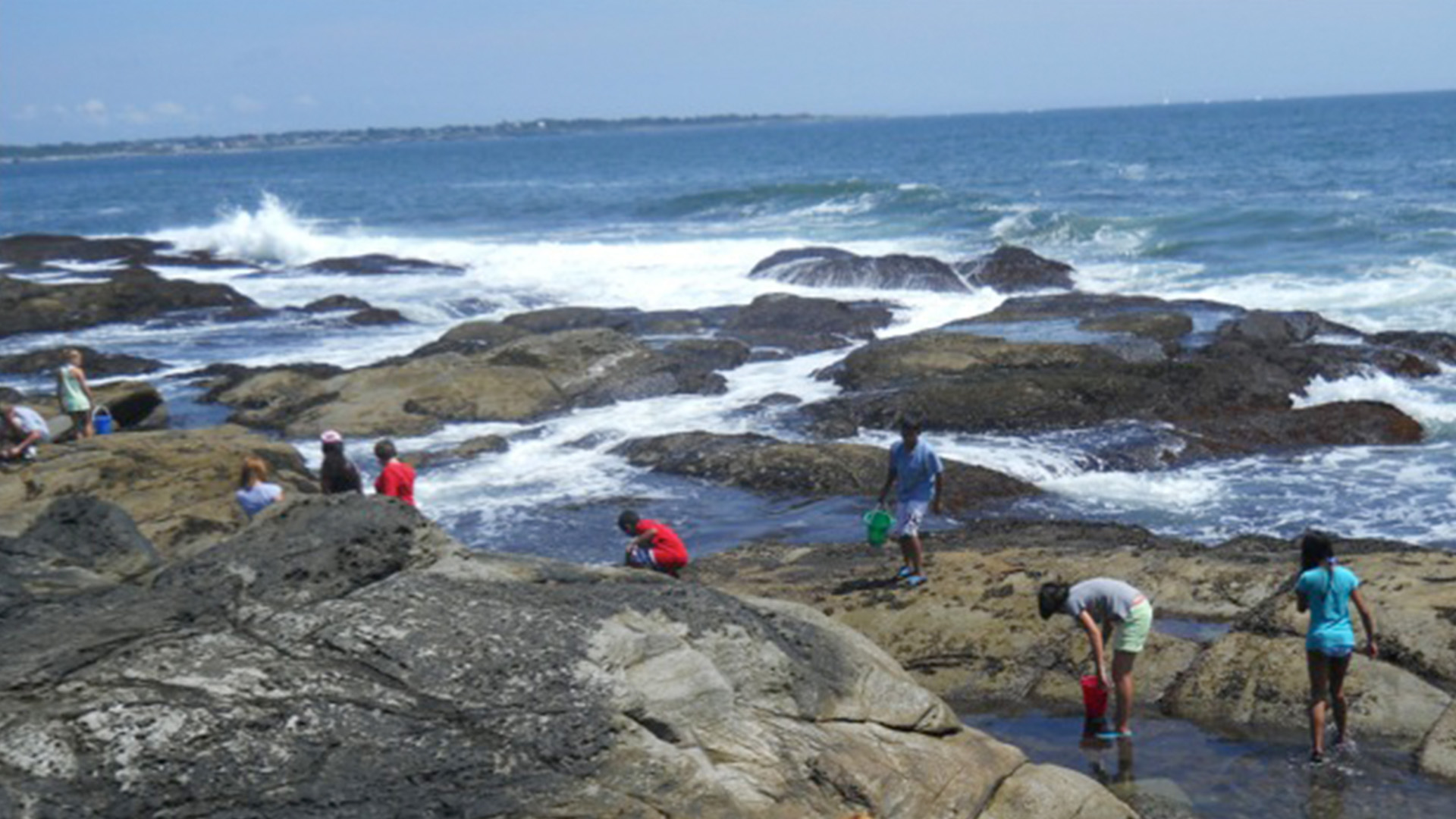Hello Ocean Explorers:
We are pleased to announce the launch of our Northwest Passage Project’s website, www.northwestpassageproject.org. The Northwest Passage Project (NPP), an innovative science and education initiative that includes an expedition into the Canadian Arctic Archipelago. This National Science Foundation (NSF) funded project will engage intergenerational cohorts of high school, undergraduate, and graduate students in hands-on research exploring the changing Arctic and collecting data.
The NOAA Ship Okeanos Explorer has recently started another expedition exploring the waters off of Apia, Samoa, in the western Pacific Ocean. Live-streamed through ISC’s Mission Control, NOAA’s remotely operated vehicle (ROV) will take place throughout the cruise, March 7- March 29. Baseline data will be collected on deep-water ecosystems in and around U.S. marine protected areas in the central and western Pacific. Be sure to follow along and tune into what should be some amazing exploration opportunities.
Registration is now open for the ISC’s Summer 2017 session of Ocean Science Exploration Camp! This year’s camp will take place from June 26th through 30th, 2017, and will focus on geological oceanography. During this week- long day camp, campers will conduct field investigations and apply scientific techniques to sample sediments, survey beaches, and investigate how coastal RI habitats differ and may be changing. Register for camp on the ISC Camps page.
Northwest Passage Project

The Inner Space Center (ISC) Associate Director Gail Scowcroft is the Principal Investigator and Project Director for the groundbreaking Northwest Passage Project (NPP), which will explore the dramatically changing Arctic by taking a team of natural and social scientists, students, and a professional film crew into the Canadian Arctic’s Northwest Passage during August 2017. The expedition team, including ISC staff members, will make the five-week journey aboard the Newport-based SSV Oliver Hazard Perry, the first full-rigged sailing ship to sail into the Passage in over a century.
Through exploration at sea and on land, the team will conduct groundbreaking ocean science research in a region that is now experiencing unprecedented environmental change, while actively engaging 35 graduate, undergraduate, and high school students in hands-on research activities. The project’s activities and findings will be shared with diverse audiences through real-time interactions, an ultra-high definition, two-hour documentary to be broadcast by a major television venue, and related community events. The project’s goal is to increase public understanding of the environmental and social consequences due to Arctic climate change; inform decision makers who influence policy development and action; and inspire students to become the next generation of scientists who will help lead efforts to ensure a more sustainable and prosperous future. Links to the live programs from the Arctic will be shared this summer. To learn more about the different science activities planned for the NPP expedition, please go here.
To learn more about the expedition, project partners, and more, please visit the Northwest Passage Project website. For project updates, please be sure to follow the ISC on social media (#NWPproject).
News Update

In April 2016, the ISC team worked with the National Transportation Safety Board (NTSB) to help investigators find the data recorder of the El Faro cargo ship that sunk during Hurricane Joaquin in October 2015. Transcripts from the El Faro‘s voyage data recorder (VDR; similar to an airplane’s black “box”) have been released by the NTSB. The VDR’s recording covers the last hours of the voyage and reveal what happened on the El Faro during its final moments. The ISC was integral in the discovery of the VDR, installing cutting-edge telepresence technologies on the Woods Hole Oceanographic Institution’s research vessel (RV), Atlantis. These efforts were praised by federal investigators. 60 Minutes recently released a piece, “Voices of the Lost”, which tells the story of the El Faro’s unfortunate encounter with Hurricane Joaquin, the NTSB’s efforts to locate and decode the VDR, and the what the recordings revealed. The piece is available on the 60 Minutes website.
Ship News
The NOAA Ship Okeanos Explorer has been very active as it starts its 2017 exploration season. In conjunction with the 75th anniversary of the attacks on Pearl Harbor, HI, the ship conducted a remotely operated vehicle (ROV) dive on two Japanese mini submarines. Highlights of the dive are available on the Okeanos Explorer website. The historic dive was also broadcast live on USA Today and ABC News. Additional images of the dive are available on NOAA’s National Marine Sanctuaries website.
After initial shakedown cruises off Honolulu, HI, the ship then sailed to explore the waters surrounding American Samoa, a U.S. territory covering seven South Pacific islands and atolls. Data and information from this expedition will fill gaps in knowledge about the deep-sea habitats in the region and improve overall understanding of the deep-sea biogeography of the Central Pacific. American Samoa lies at the boundary between major biogeographic provinces, and thus is a key area to understand the biodiversity transitions that occur in the deep Pacific Ocean. It is also an extremely important area for deepwater circulation. During the first part of the American Samoa Expedition, from February 16 – March 2, 2017, many amazing discoveries
American Samoa Expedition, from February 16 – March 2, 2017, many amazing discoveries were made including the siting of a new species of cookie brittle star, an unusual stalked crinoid, and even a “living fossil”. The team discovered a living specimen of monoplacaphora mollusk, a species of snail that scientists had never seen alive.

The second leg of this expedition will be a mapping leg to create images of the sea floor, and will take place in April 2017.
The Okeanos Explorer’s has begun its next expedition, “Discovering the Deep: Exploring Remote Pacific Marine Protected Areas”, which will take place from March 7 – 29, 2017. The goal of this expedition is to collect critical baseline information about unknown and poorly known deep-water areas in the Howland and Baker Unit of the Pacific Remote Islands Marine National Monument (PRIMNM) and the Phoenix Islands Protected Area (PIPA). Live footage from the ROV dives are streamed through the homepage of the ISC website as well as the NOAA Okeanos Explorer website. To learn about all, planned Okeanos Explorer activities for 2017, please read the ISC’s latest Okeanos article.
The E/V Nautilus will begin their 2017 expedition season this spring off of Southern California. Until then, catch up on all of their highlights on nautiluslive.org.
2017 Ocean Science Exploration Camp- Geological Oceanography
 Registration is now open for the ISC’s Summer 2017 session of Ocean Science Exploration Camp. This year’s camp will take place from June 26-30, 2017, at the University of Rhode Island’s Graduate School of Oceanography in Narragansett, RI, and will focus on geological oceanography.
Registration is now open for the ISC’s Summer 2017 session of Ocean Science Exploration Camp. This year’s camp will take place from June 26-30, 2017, at the University of Rhode Island’s Graduate School of Oceanography in Narragansett, RI, and will focus on geological oceanography.
Geological oceanography is the study of the sea floor, including its composition, structures, and history. Geological oceanographers study processes of the ocean to discover how the Earth and oceans were formed and how ongoing processes may change them in the future. They examine the ocean from the deepest depths to the shallow coasts, including beaches, estuaries, and rivers. New underwater mountains, seamounts, vents, and seeps are discovered during geological oceanography research expeditions. These undersea features are home to many kinds of marine life.
For more information about this summer’s Ocean Science Exploration Camp program and registration details, please visit the ISC Camps webpage.
ISC Education Program Spotlight: “The Unknown Ocean”

The ocean covers nearly 71% of the Earth, yet approximately only 10% of the ocean has been explored.
Scientists are continuing to explore the ocean’s biology, geology, chemistry, physics, and history. This program covers the tools and technologies that scientists use to explore the deep ocean, how animals have adapted to survive in extreme ocean environments, and the technology used to investigate the deep sea. Through videos, demonstrations, and conversations with scientists, participants will go on a journey into the unknown ocean.
All ISC education programs align with the U.S. Next Generation Science Standards (NGSS), as well as the Ocean Literacy Principles and Fundamental Concepts. ISC education programs can be booked at the ISC, at your site, or virtually (online).
If this program interests you, take advantage of our “monthly spotlight special.” If you book a The Unknown Ocean program in the month of March (actual program does not have to occur in March) you will receive a 15% discount.
Special Programs with the Girl Scouts of Southern New England
The ISC continues to offer ocean science education programs through the Girl Scouts of Southern New England (GSSNE). Programming will continue through June with topics to include hurricane science and forecasting; plankton biology and ecology; and ocean exploration. Individual girls, or whole troops, can register for these programs. Specific dates and registration details are available through GSSNE website.
Upcoming Programs:
The Unknown Ocean with URI Inner Space Center (B)
Date: Sat Apr 22, 10:00 AM – Sat Apr 29, 11:30 AM
Location: University of Rhode Island: Inner Space Center
Hurricanes: Science and Society with URI Inner Space Center
Date: Sat May 06, 10:00 AM – 11:00 AM
Location: GSSNE Office
Walk the Plank (ton) with URI Inner Space Center (J)
Date: Sat Jun 10, 1:00 PM – 2:00 PM
Location: GSSNE Office
Upcoming Public Tours
Explore with us and sign up for an ISC public tour.
Our upcoming public tour dates are:
Tuesday, April 4 @3PM.
Tuesday, May 2 @3PM.
Fee: $5 per participant.
Tour registration will close 24 hours prior to the scheduled date.
Book here (pre-registration is required)
Please contact tours@innerspacecenter.org with any questions. Private ISC tours are also available for school, youth, and public groups as well as other organizations.
Throwback Thursday
This month’s #TBT video takes a look at an uncommon creature found during a NOAA Ship Okeanos Explorer ROV dive last month. Scientists were intrigued by this dandelion siphonophore found on the Rose Atoll Marine National Monument (American Samoa). It could be a new species!
